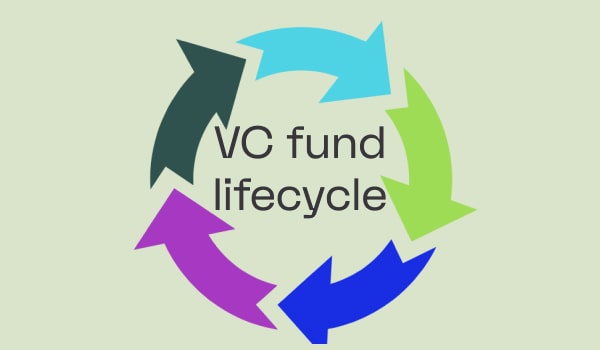In the venture capital industry, deals are made after embarking on comprehensive sourcing, screening, and diligence processes that inform the investment decision. Bottlenecks and poor decision-making can hold up any of these processes, resulting in inefficient or misaligned deal flow.
Author and psychoanalyst James Hollis said, “Hubris, or the fantasy that we know enough to know enough, seduces us toward choices that lead to unintended consequences.” This is definitely true of the VC industry, where a longer diligence period and heightened investment risk leave more room for a gradual misalignment of investment objectives and cold feet on either side of a deal.
To understand how bad deal flow can affect VC firms, it’s important to first examine what leads to poor deal flow.
What Leads To Bad Deal Flow?
There are several reasons why deal flow can deteriorate, such as a poor network or operational challenges. Moreover, if a firm’s deal flow already suffers from such problems, they grow and worsen as the firm scales, eventually creating a significant impact on its revenue.
For instance, a weak referral or relationship network might not matter for a just-launched VC firm focused on spreading its funds across several small deals to build its reputation. However, after constructing a sizable portfolio, the firm will naturally want to place more emphasis on the quality of deals it receives and closes. However, without a strong referral network, it will struggle with its objective.
Here are some major reasons why firms suffer from bad deal flow:
Misalignment of objectives
Leading startup accelerator Y Combinator (YC) explains:
“Though VC firms generally act in ways that they believe are most likely to help a company succeed, their incentives can become misaligned because of uncertainty and time.”
VCs recognize that a majority of their profits can be traced to a small number of deals. Given the inherently risky nature of VC investments and their high failure rate, it’s important for VC firms to quickly assess a startup’s ability to generate a desirable ROI in order to justify participating in or passing on the startup’s subsequent fundraises. Individual partners spend several months supporting portfolio companies to judge whether they are worth further investment of capital and time. Contrary to the frugality they espouse in the due diligence process, VC firms often promote a high cash burn because its impact on a company’s trajectory, whether positive or negative, usually speeds up their assessment process. However, this creates a misalignment of business objectives between the VC firm and the startups in its portfolio, which negatively affects the firm’s reputation and, eventually, its deal flow.
Weak Referral Networks
One of a VC firm’s most important assets is social capital, which helps connect them to startups via referrals. Social capital makes VCs more attractive to entrepreneurs, helps them access better deals, and increases the inflow of leads to their firm. Finding high-quality deals that generate a healthy ROI is, therefore, difficult without network referrals. Since startups strongly consider a firm’s reputation and portfolio before approaching it for funding, VC firms with a weak referral network and low social capital will find it difficult to survive in the industry.
A key reason for bad deal flow could be low social capital stemming from ineffective reputation-building exercises. It’s important for young firms to focus on building a strong associate network that can help them find viable deals and bolster their deal flow.
Passing on good opportunities due to performance pressure
The average venture capital fund cycle is 10 years, but most VCs raise funds every 2-4 years. As Y Combinator explains, there is barely enough time for a VC firm to prove returns to limited partners (LPs) before raising funds again. As a result, VC firms use investee companies’ private fundraises to drive up valuations and increase the overall value of their portfolios for the benefit of LPs they wish to tap for their follow-on funds. Firms that invest exclusively in early-stage startups often participate in their investees’ successive funding rounds within the span of a few months.
Back-to-back fundraising cycles compel VCs to quickly demonstrate portfolio success, which means they might overlook good deals with long-term prospects. VC firms have to perform a balancing act between making investments that are inherently risky and showing timely returns, and this performance pressure ruptures the deal flow pipeline, negatively affecting deal sourcing and screening.
Fred Wilson, co-founder of NY-based VC firm, Union Square Ventures, recalls an excellent example of this phenomenon on his blog AVC. In the winter of 2009, the founders of Airbnb approached Wilson through a warm introduction from a fellow member of the investor community, Paul Graham, who had supported the startup through Y Combinator. Wilson liked the founders and saw merit in Airbnb’s idea of becoming the ‘eBay of spaces’. However, he was deterred by the company’s Ramen Profitability, a term denoting a phase in which a company makes just enough revenue to pay the founders' living expenses if they were to live on ramen noodles.
Airbnb’s shaky short-term business prospects led Wilson to pass on a company that he now considers to be one of the best startups to come to his firm in recent years.
Discussing his failure to recognize Airbnb’s potential, Wilson said: “We made the classic mistake that all investors make. We focused too much on what they were doing at the time and not enough on what they could do, would do, and did do.”
Lack of proprietary market insights
Given the increase in angel investing and crowdfunding, VC deal flows are no longer proprietary. Operator-led angel funds, comprehensive scout programs, and meticulously planned crowdfunding campaigns all compete with VCs in today’s investing landscape, putting the onus on VC firms to demonstrate their value through useful, proprietary insights that enhance their sourcing and diligence processes and help startups refine their product offerings.
VC firm Work Bench added value by conducting market surveys to assess the potential of Socure, a startup from their 2015 class. The Work Bench team spoke to several bank executives who shared the same pain point - the need to increase the speed of KYC and other identity verification processes while keeping fraud levels down. At the time, there was no company in the market that could fulfill their needs, while Socure provided a scalable, enterprise-grade solution for the problem. Bank of America became Socure’s marquee customer, and Work Bench’s investment in Socure turned out to be one of its most profitable deals.
VC firms like Work Bench also leverage their industry networks to help portfolio companies land major customers as well as follow-on funding from other investors. Without unique market insights and the network to help them come to fruition, VC firms come across as less desirable partners for startups, which negatively affects their deal flow, reputation, and future lead generation capabilities.
Inefficient deal management processes
A standard VC deal flow comprises several business processes that work in tandem to create a deal flow pipeline. When any of these processes become inefficient, they inevitably create a drag on the others, allowing substandard opportunities to move further down the pipeline. This puts pressure on the diligence team, which then struggles to find opportunities devoid of legal, financial, or operational problems.
Missing out on important leads because of ineffective inbound and outbound communication is also a pressing concern for VC firms. Good opportunities are often overlooked or mishandled if deal management processes are ineffective.
Zapflow is a deal flow management platform that can streamline your deal pipeline. It enables efficient, automatic lead capture and screening based on custom parameters. VCs can contact eligible companies, request further data, and set up meetings all on the same platform. This helps your team avoid the hassle of engaging in long email threads and extracting key points of discussion after each communication. Zapflow’s Explorer module allows firms to conduct comprehensive market research and competitive analysis within minutes. Contact us for a free demo today.
Get in touch today!



